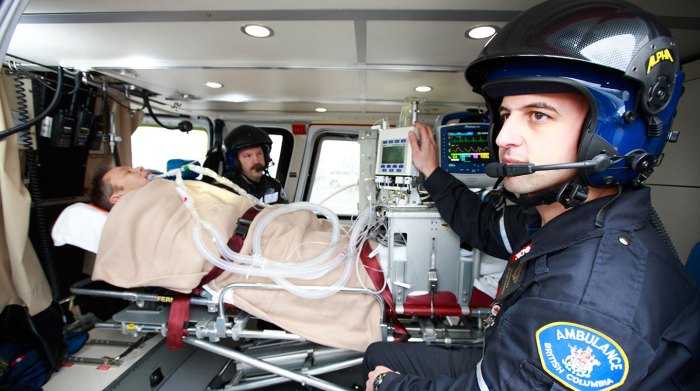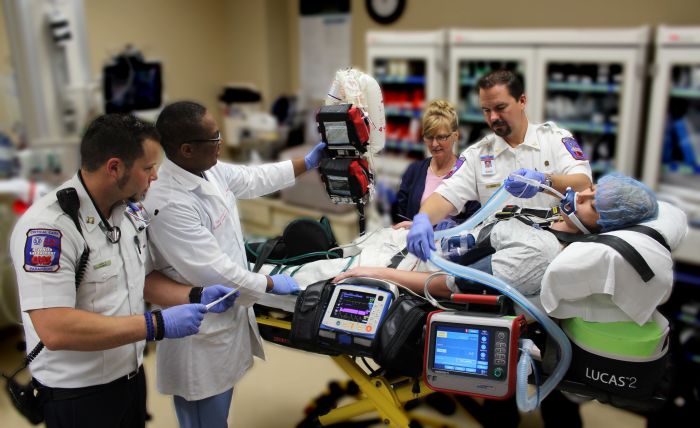Critical care paramedic practice tests are an essential tool for healthcare professionals seeking to excel in the field of critical care. These tests provide a structured and comprehensive assessment of knowledge and skills, enabling individuals to identify areas for improvement and enhance their overall preparedness for the demanding role of a critical care paramedic.
This comprehensive guide will delve into the various aspects of critical care paramedic practice tests, exploring their significance, content coverage, test-taking strategies, and performance evaluation criteria. Additionally, it will provide a curated list of practice questions and additional resources to support candidates in their preparation journey.
Introduction

Critical care paramedic practice tests are essential tools for preparing for the National Registry of Emergency Medical Technicians (NREMT) Paramedic exam. They provide a way to assess your knowledge and skills, identify areas where you need improvement, and build confidence in your ability to pass the exam.There
are several different types of critical care paramedic practice tests available, including:
- Computer-based practice tests: These tests are typically taken online and provide immediate feedback on your performance.
- Paper-based practice tests: These tests are taken on paper and require you to mail them in for grading.
- Simulation-based practice tests: These tests involve performing critical care skills in a simulated environment.
Each type of practice test has its own advantages and disadvantages. Computer-based practice tests are convenient and provide immediate feedback, but they can be expensive. Paper-based practice tests are less expensive, but they require you to wait for your results.
Simulation-based practice tests are the most realistic, but they can be difficult to find and expensive.
Content Analysis

Critical care paramedic practice tests encompass a wide range of content that assesses the knowledge and skills required for providing advanced life support in critical care settings.
The tests typically cover key topics and concepts that are essential for critical care paramedics, including:
Patient Assessment and Management
- Initial assessment and stabilization of critically ill or injured patients
- Monitoring and interpreting vital signs and other physiological data
- Establishing and maintaining airway, breathing, and circulation
- Managing pain and discomfort
Pharmacology
- Understanding the actions, indications, and contraindications of critical care medications
- Calculating and administering medications accurately
- Monitoring for and managing medication side effects
Trauma Management
- Assessing and managing traumatic injuries
- Controlling hemorrhage and shock
- Transporting trauma patients safely and efficiently
Cardiovascular Emergencies, Critical care paramedic practice test
- Recognizing and managing cardiac arrhythmias
- Providing advanced cardiac life support (ACLS)
- Using defibrillators and other cardiac monitoring equipment
Respiratory Emergencies
- Assessing and managing respiratory distress
- Providing mechanical ventilation
- Managing airway emergencies
Neurological Emergencies
- Recognizing and managing stroke, seizures, and other neurological emergencies
- Assessing and managing head and spinal cord injuries
Other Critical Care Topics
- Medical emergencies, such as sepsis, diabetic ketoacidosis, and hypertensive crisis
- Environmental emergencies, such as heat stroke, hypothermia, and altitude sickness
- Ethical and legal considerations in critical care
Test-Taking Strategies

Effective test-taking strategies are essential for success on critical care paramedic practice tests. These strategies can help you manage your time, answer questions effectively, and reduce stress, ultimately improving your test performance.
Time management is crucial. Begin by reviewing the test instructions and time limits to allocate time wisely for each section. Use a watch or timer to track your progress and ensure you stay on schedule.
Answering Questions
When answering questions, read them carefully to understand the intent and identify s. Eliminate any answer choices that are clearly incorrect or irrelevant. If you are unsure of an answer, make an educated guess or flag the question for review later.
Reducing Stress
Stress can impair your performance on a test. To reduce stress, prepare thoroughly by studying the material and familiarizing yourself with the test format. Get a good night’s sleep before the test and arrive at the testing center early to minimize anxiety.
Practice Questions
Practice questions are essential for preparing for critical care paramedic practice tests. They help you identify areas where you need additional study and provide an opportunity to test your knowledge and skills.
There are many different types of practice questions available, including multiple choice, true/false, and short answer. Each type of question tests a different skill, so it is important to practice all types of questions.
Multiple Choice Questions
Multiple choice questions are the most common type of practice question. They consist of a stem, which is a question or incomplete statement, and four or more answer choices. Only one answer choice is correct.
True/False Questions
True/false questions are another common type of practice question. They consist of a statement that is either true or false. You must decide whether the statement is true or false.
Short Answer Questions
Short answer questions require you to write a brief answer to a question. Short answer questions can be used to test your knowledge of a specific topic or to assess your ability to apply your knowledge to a real-world situation.
Performance Evaluation: Critical Care Paramedic Practice Test
Evaluating the performance of critical care paramedics on practice tests is crucial to assess their knowledge and skills. This evaluation aids in identifying areas for improvement and ensuring that paramedics are well-prepared for real-world scenarios.
Grading Rubric
A comprehensive grading rubric should be developed to provide clear guidelines for assessing performance. The rubric should include:
- Knowledge Assessment:This section evaluates the paramedic’s understanding of critical care principles, including pathophysiology, pharmacology, and treatment protocols.
- Skills Assessment:This section evaluates the paramedic’s ability to perform critical care procedures, such as airway management, vascular access, and invasive monitoring.
- Case Analysis:This section evaluates the paramedic’s ability to analyze patient data, formulate a diagnosis, and develop an appropriate treatment plan.
Criteria for Assessing Knowledge and Skills
The criteria for assessing knowledge and skills should be specific, objective, and measurable. These criteria may include:
- Accuracy:The paramedic provides accurate and up-to-date information in their responses.
- Completeness:The paramedic provides comprehensive and thorough answers that address all aspects of the question.
- Relevance:The paramedic’s responses are relevant to the question and demonstrate an understanding of the critical care concepts.
- Technical Skills:The paramedic demonstrates proficiency in performing critical care procedures with precision and efficiency.
- Critical Thinking:The paramedic demonstrates the ability to analyze patient data, identify potential problems, and make sound clinical decisions.
Additional Resources
Preparing for critical care paramedic practice tests requires comprehensive study materials. To supplement your primary resources, consider exploring the following additional resources:
Websites
- National Association of Emergency Medical Technicians (NAEMT): https://www.naemt.org/ offers a range of practice tests and study materials.
- BoardVitals: https://www.boardvitals.com/critical-care-paramedic-cc-p-practice-test/ provides online practice questions and simulation tests.
- Paramedic Coach: https://www.paramediccoach.com/critical-care-paramedic-practice-test/ offers a collection of free practice tests.
Books
- Paramedic Critical Care:by Bryan E. Bledsoe, Robert S. Porter, and David A. Sayre. This comprehensive textbook covers the full scope of critical care paramedicine.
- Critical Care Transport:by David C. Brindley. This book focuses specifically on the challenges of transporting critically ill patients.
- Critical Care Paramedic Study Guide:by Kaplan Medical. This study guide provides a comprehensive review of the critical care paramedic curriculum.
Study Guides
- EMT-Critical Care Paramedic Practice Test:by Ascencia Test Prep. This practice test covers all aspects of critical care paramedicine.
- Critical Care Paramedic Study Guide:by FireSciencePro. This study guide includes over 1,000 practice questions.
- Critical Care Paramedic Certification Review:by JEMS. This review guide provides a comprehensive overview of the critical care paramedic exam.
Essential Questionnaire
What is the significance of critical care paramedic practice tests?
Critical care paramedic practice tests serve as valuable tools for assessing knowledge and skills, identifying areas for improvement, and enhancing overall preparedness for the demanding role of a critical care paramedic.
What types of critical care paramedic practice tests are available?
Various types of critical care paramedic practice tests exist, including multiple choice, true/false, short answer, and scenario-based questions, each designed to evaluate specific aspects of knowledge and skills.
How can I develop effective test-taking strategies for critical care paramedic practice tests?
Effective test-taking strategies involve proper time management, careful question analysis, strategic answering techniques, and stress reduction methods to optimize performance during the exam.